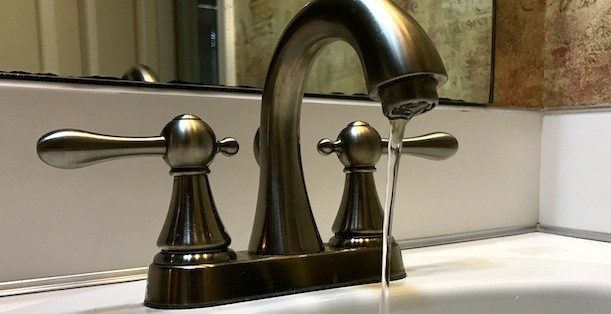Fort Smith official: Meter replacements will cost $7 million over a phase-in period of two years
by October 19, 2017 5:39 pm 493 views

Fort Smith Utilities Director Jerry Walters expects the city’s water meter replacement program to be phased in over a two-year period at a cost of $7 million. To date, Walters said, the city has replaced approximately 1,700 (5%) of the meter population.
In total, the city services 36,589 meters. From these, roughly 16,800 have exceeded their normal life expectancy (45.91%) with 9,500 of those (25.96% of the total) more than 20 years old.
“When we are done, meter readers will no longer have to walk their route and read each meter individually,” Walters told Talk Business & Politics in a recent interview, adding new meters “will be read by an electronic receiver carried in a vehicle,” thus “significantly” reducing the number of errors and re-reads.
In January, the city began using new meters for all replacements. With recent approval from the Board of Directors, the utilities department will replace water lines and meter boxes, Walters said.
“As this project progresses, we will follow along behind the contractor and replace the meter. I anticipate that most of the meters will be replaced by in-house staff, which should be a cost savings over replacing the meters with a contractor.”
Walters said the city will provide advanced notice to customers before work begins in their neighborhood “primarily by door hangers,” adding it plans to “publish articles to tell people what and why we are doing this effort.”
“I anticipate the notification will give a time frame for when the work will be done,” Walters explained, though he did not have particulars as to how far in advance those notifications would be. “Assuming the work stays on schedule, the work will be completed at the end time included in the notification. If issues are found with any particular meter, the homeowner will be individually contacted.”
Walters reiterated that the meter changes are not a water rate increase being charged to the customer though “Some people will see their water bill go up, some won’t change, and others may go down.”
Approximately one in four water customers in the city of Fort Smith could see an average increase of 21.3% on their water bills as a result. Walters said following an Oct. 10 study session he expects the largest increases to be on the aforementioned 9,500 meters that have exceeded 20 years in operation, some of which were not giving a reading at all for the amount of water they were using. The additional 7,300 that have outlived the recommended 10 years (19.95% of the city’s total metered population) will likely see smaller increases, but Walters acknowledged he would not know for certain whether the meter replacement schedule will result in that overall 21.3% revenue increase until he finishes measuring data over the next year.
When asked if the city would consider a phase-in period to avoid sticker shock, Walters said that would be a consideration city administration would have to decide. Considering it’s budget-related, it would also have to be approved by the Board of Directors.
